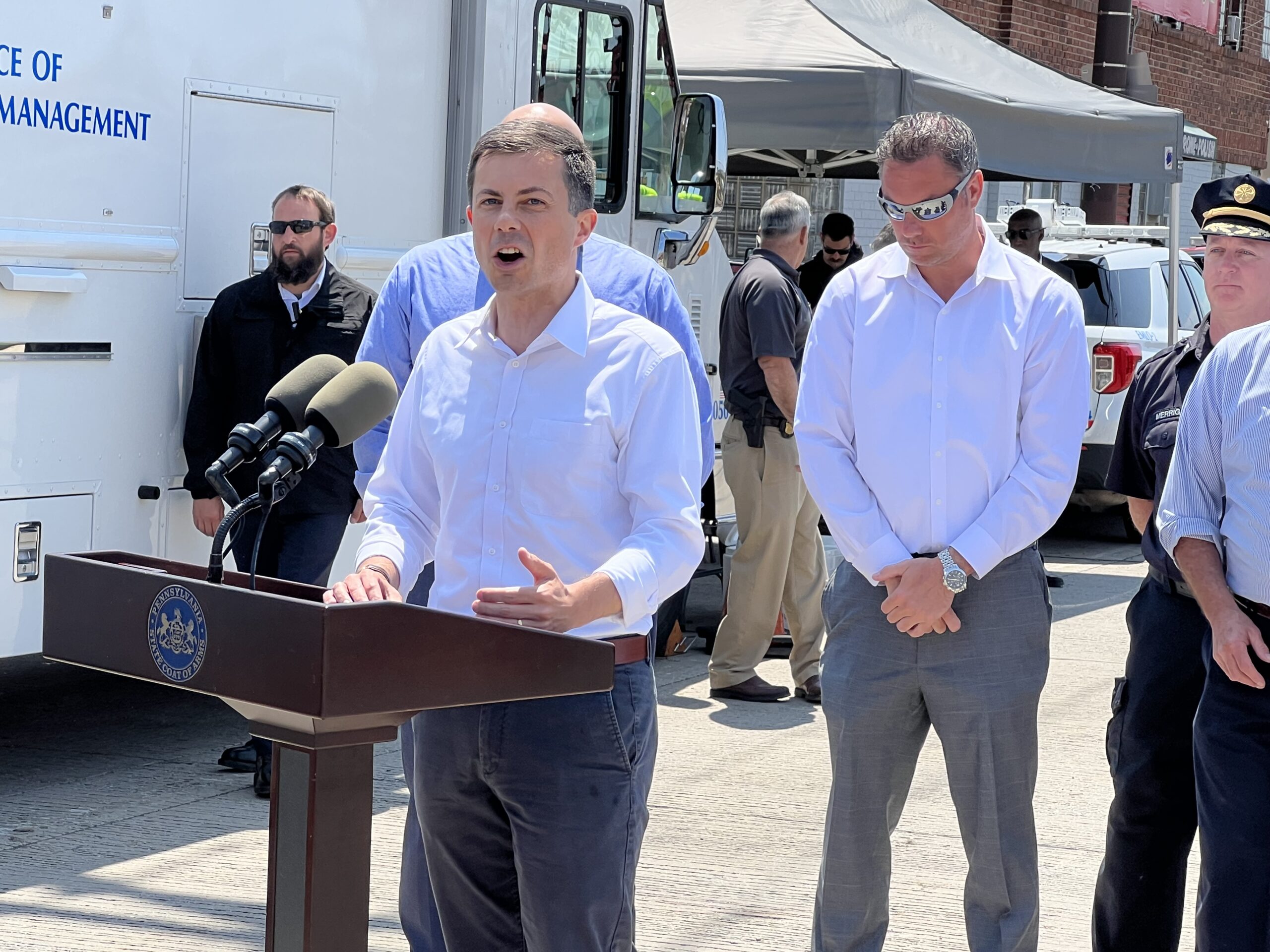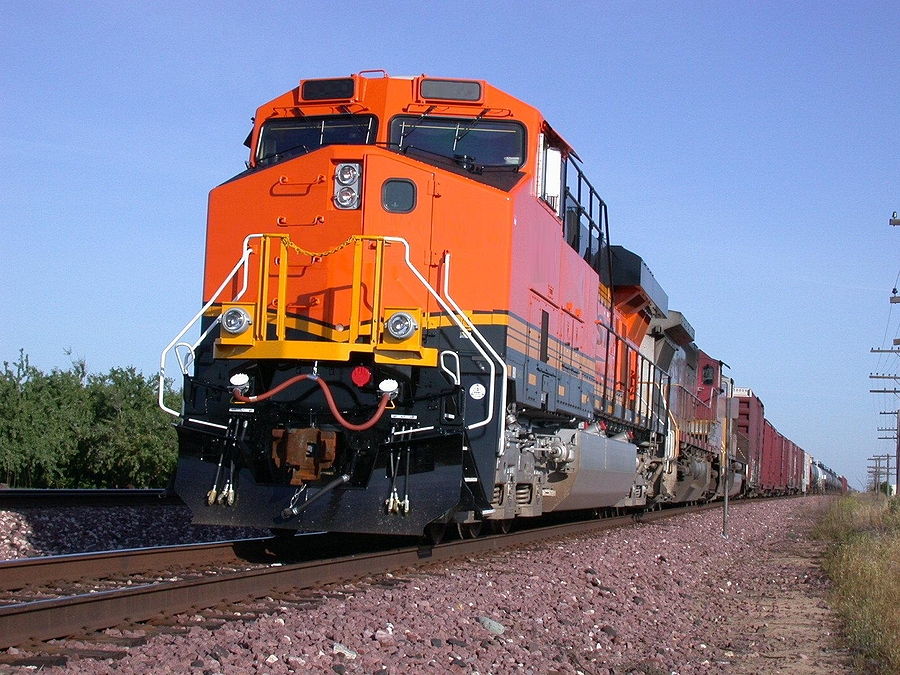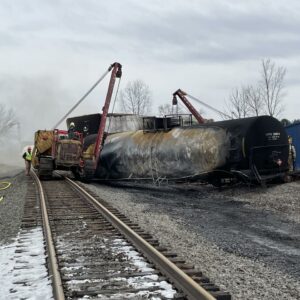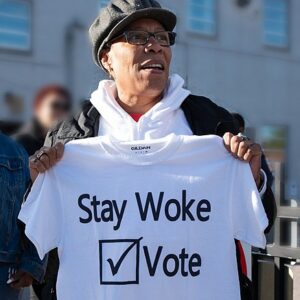Critics Fear Post- East Palestine Rail Bill Adds Costs, Not Safety, For Consumers
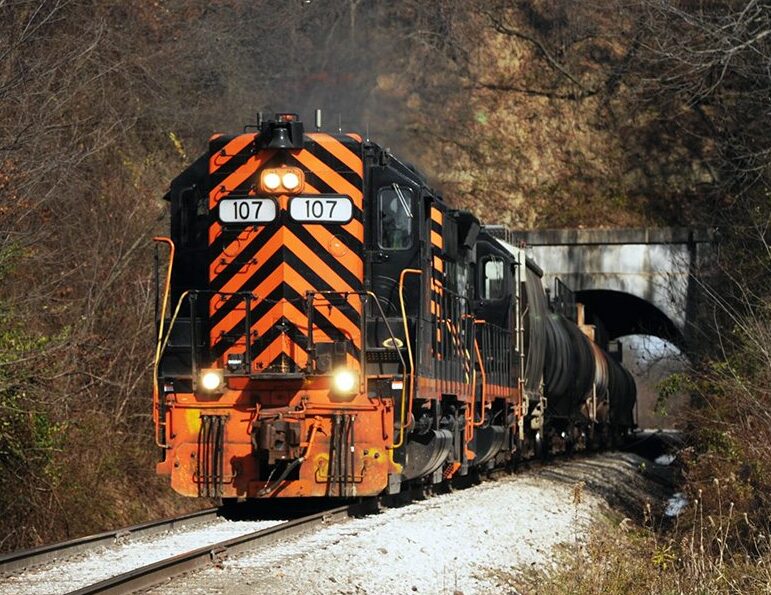
It is called the Railway Safety Act, but critics fear the bill is more about politics than protecting the public.
And advocates for Pennsylvania’s rail industry are particularly concerned about the impact it could have on the cost of moving the state’s 50 million tons of freight each year.
“It doesn’t target actual safety issues in the industry and transportation more broadly,” Marc Scribner, senior transportation policy analyst at the Reason Foundation, told DVJournal. “This was hastily assembled from existing policy priorities, mainly from the left…for what it claims to be doing, it’s poorly targeted, and it fails on its own terms.”
The bill, whose sponsors include populists like Ohio Sens. J.D. Vance (R) and Sen. Sherrod Brown (D), emerged weeks after a train derailed in East Palestine in early February. According to the National Transportation Safety Board, 11 tank cars from the Norfolk Southern Railway train went off the tracks and burned, damaging 12 other non-derailed cars.
“It shouldn’t take a massive railroad disaster for elected officials to put partisanship aside and work together for the people we serve – not corporations like Norfolk Southern,” railed Brown when announcing the bill. “Rail lobbyists have fought for years to protect their profits at the expense of communities…These commonsense, bipartisan safety measures will finally hold big railroad companies accountable…and prevent future tragedies…”
The legislation – supported by both President Joe Biden and former President Donald Trump – enacts new requirements for freight trains, including a two-person crew mandate, trackside detector requirements, and increased and unknown regulations for hazardous material transportation.
“Congress should do everything it can to ensure that what happened in East Palestine never happens again,” said Sen. Marco Rubio (R-Fla.), a bill co-sponsor. “For far too long, the rail industry, and the government agencies that regulate it, have prioritized their bottom line over safety and resiliency. This comprehensive bill would help prevent future catastrophic derailments.”
But critics of the bill note it would have had no impact on the events in East Palestine. And it does not acknowledge rail’s safety record as it moves millions of tons of freight daily.
The bill’s two-person crew mandate particularly rankles critics.
“Many of the provisions, including a crew size mandate, are longstanding policy reforms that have been sought by certain stakeholders that appear grafted into this act even though they are not relevant to the East Palestine incident the act,” said Benjamin Dierker, executive director of the Alliance for Innovation and Infrastructure (AII). “The crew size mandate is curious given that there is already a rulemaking process to accomplish that underway by the Federal Railroad Administration. This particular provision wouldn’t have impacted East Palestine because it already had three personnel on the train.”
Competitive Enterprise Institute’s vice president for strategy and senior fellow, Iain Murray, agreed, arguing the rule change is about union dues, not saving lives.
“[The two-man crew] has been the top issue on railway labor union wish list for years. And so, they’ve seen this opportunity to come forward and say, ‘We believe in safety. We believe in two-man crews. Pass this bill, and everything will be fine.’”
There’s also concern in Pennsylvania regarding the potential for a two-person crew requirement. The Pennsylvania Manufacturers’ Association wrote state lawmakers in June that the potential mandate is “unnecessary and expensive” because it “discourages continued technological advances in the field of autonomous vehicles.” Like AII, the PMA memo note there were three crew members on the East Palestine train at the time of the tragic crash.
Pennsylvania has a version of the Railway Safety Act working its way through the state legislature.
But there is little empirical data backing up the claim that more personnel in an industry that is becoming increasingly automated will increase safety.
The Transportation Trades Department, AFL-CIO, has promoted the two-person crew since at least 2013. The Association of American Railroads believes it is a bad idea, pointing to one-person crew use in the U.S. and the globe. Japan, New Zealand, Denmark, Sweden, and the UK all feature single-crew locomotives.
Then there is the legislation’s potential impact on innovation in the freight rail industry.
“There are systems that are being experimented on around that will probably give a much better automatic inspection of track and wheel safety than the technology being locked in with this bill,” Murray said. “The sort of mandates that they’re using have led to technology stagnating…we want technology to develop.”
Dierker shares a similar concern. “Some of these are positive train control technology, automatic track inspection tools, and even wayside defect detectors. Where that gets challenging is assessing whether industry or government should set the standard.”
Serious questions remain regarding whether the Railway Safety Act will make shipping safer for an industry that boasts a robust safety record.
“If you compare it across modes of transportation, you see that rail is far safer than trucks,” said Scribner. “Sound policymaking requires that you think about these competitive interactions between modes of transportation. If you impose a rule on one and that causes customers to choose a less safe alternative, you haven’t improved safety. You’ve worsened it.”
“Road shipping is much, much more dangerous than rail shipping,” said Murray. “If you want to ship hazardous material around the country, rail is very definitely the way to go. Anything that discourages people from shipping hazardous material by rail is probably a step backward for safety.”
The ultimate loser, however, may be the U.S. consumer should the Railway Safety Act become law. Murray, Scribner, and Dierker all warned about “real costs” in the legislation, including the potential for rising prices to offset higher shipping costs.
The Senate Commerce Committee approved the bill in May, but the legislation has yet to make it to the full Senate.
Please follow DVJournal on social media: Twitter@DVJournal or Facebook.com/DelawareValleyJournal

